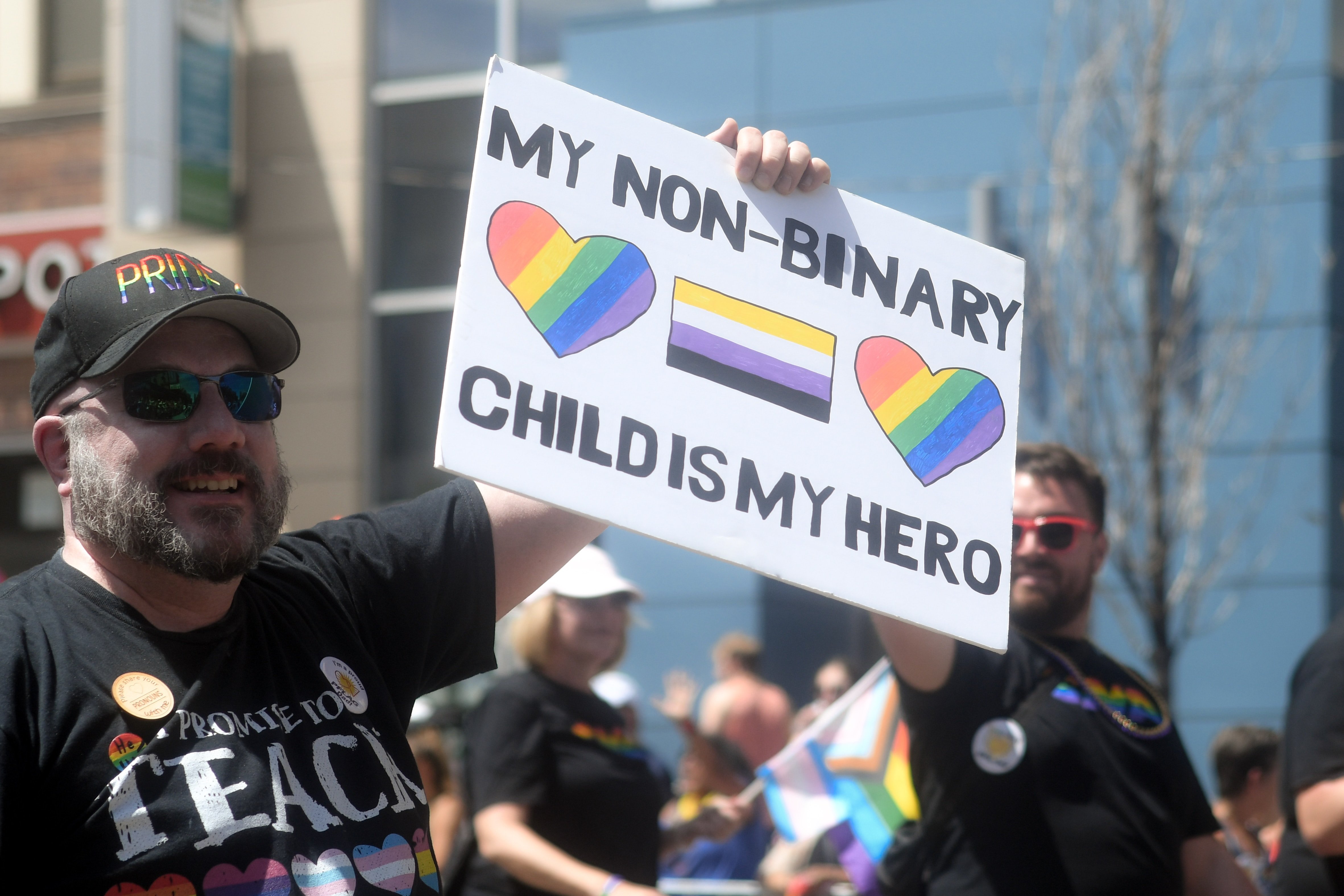
As a gender-fluid, neurodivergent student who has surmounted dozens of hurdles to get from high school to college, I am all too familiar with the reasons why trans youth go into higher education in lower numbers than other populations, why LGBTQ students are more likely to drop out of college and how all of this translates into higher student debt. Indeed while I am grateful for the chance to address this cycle — and maybe help create change — just assembling data on the scope of the problem has my heart racing. On paper, the odds are so daunting, and the reality of needing scholarship support so personal, I'm beating back anxiety.
Consider the following :
UCLA’s Williams Institute has reported that nearly 19% of transgender freshmen express concern at their ability to afford college, as opposed to 12% in the national sample.
I'm not affected by some of the factors that contribute to trans students’ poor experiences in college. My family has not rejected me, which is one reason many LGBTQ youth find themselves unable to enroll or stay in higher ed. I have friends who struggle to get their parents to understand their identities and support their goals. I see first-hand how much harder things are for them.
I have not had to face trying to find a job to help close this gap — or the discrimination that job might add to my load. My high school counselor helped me pick out a small liberal arts college that welcomes gender nonconforming students and offers them their choice of dorms and clubs and other supports. Either of these hurdles likely would have meant I would not have even tried to go.
Still, challenges related to my identity mean I'll spend longer in college and pay more to complete it than most of my classmates. My campus is affirming, but the small city in Wisconsin where it is located is not. When I leave to run an errand, if there is an election in the future I face hateful yard signs. If there is no election, I know how the people in those houses see me. Gender dysphoria and the anxiety it causes mean I often second-guess whether I am truly being accepted in class, with professors and in social settings.
Some days, I wake up so uncomfortable in my body that I can’t eat and don’t want anyone to see me or hear my voice. When I first started college, I was too scared to tell anyone this or to ask for help. Because I had endured so much in high school — despite my teachers’ best efforts — I saw these problems as my own shameful secret. My parents tried to find mental health care for me in the small, politically red city where my college is located, but could not find therapists who we could trust would really support me. I was so isolated I spiraled into dark places.
It took two leaves of absence and a lot of hard work with a therapist in the trans-friendly city where I grew up, but I am now back at college. I have found a therapist and a wonderful group of queer friends. I advocate for myself with faculty and last semester earned two As and a B.
I will succeed, but maybe not in eight semesters. Even with my parents contributing and my financial aid in place, I will take on additional debt to graduate. It will be worth it, I know, but it would also help me to meet my life goals — which include raising awareness of LGBTQ student challenges and finding opportunities to advocate for our rights — if I had a manageable debt load.
I'm fortunate that in 2023, despite horrific politics demonizing trans folks and never letting us forget for one second that there are people who want to make our lives as hard as possible, there are organizations — including the one raising funds for the TransgenderFirst Scholarship — working to change these disparities so that gender nonconforming students stand a fighting chance.
Jax Doe is a 21-year-old sophomore studying creative writing. Doe uses she/her and they/them pronouns. They have been out to their family and friends for six years, but prefer to publish under a pseudonym because of the current political climate.
The fight for educational equity has never been just about schools. The real North Star for this work is providing opportunities for each child to thrive into adulthood. This means that our advocacy...
Your donation will support the work we do at brightbeam to shine a light on the voices who challenge decision makers to provide the learning opportunities all children need to thrive.
Ed Post is the flagship website platform of brightbeam, a 501(c3) network of education activists and influencers demanding a better education and a brighter future for every child.
© 2020–2024 brightbeam. All rights reserved.